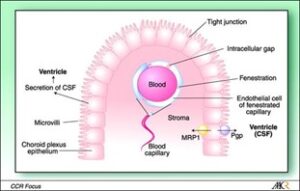Chemotherapy for Brain Mets
 In certain situations your treatment team might recommend medications to control your brain metastases. Whether medications might help you will depend on where your cancer began and your individual situation. Options might include:
In certain situations your treatment team might recommend medications to control your brain metastases. Whether medications might help you will depend on where your cancer began and your individual situation. Options might include:
Chemotherapy uses drugs to kill quickly growing cells in the body, including cancer cells.
Targeted therapy drugs.Targeted drug treatments focus on specific abnormalities present within cancer cells. By blocking these abnormalities, targeted drug treatments can cause cancer cells to die.
Immunotherapy uses your immune system to fight cancer. Your body’s disease-fighting immune system may not attack your cancer because the cancer cells produce proteins that help them hide from the immune system cells. Immunotherapy works by interfering with that process.
If chemotherapy is used, it has to be one that will pass through the Blood/Brain Barrier (BBB). The BBB, with its limited permeability to systemic treatment, has traditionally interfered with cancer treatments.
Some chemotherapy agents can pass through the BBB to attack cancer cells, including temozolomide (Temodar), lomustine (Gleostine), and carmustine (BiCNU). However, chemotherapy is generally not as effective as surgery and radiotherapy (RT), which remain standard treatments for brain tumors.
Recent advances with targeted therapies and immunotherapies have fueled optimism that systemic therapies can play an important role in brain tumor management. Major advances have been made in the central nervous system (CNS) penetrance of targeted therapies for ALK-rearranged and EGFR-mutant non—small cell lung cancer (NSCLC), HER2-positive breast cancer, and melanoma.
BRAF-Mutated Melanoma
EGFR-Mutant NSCLC
HER2-Positive Breast Cancer
PD-1/PD-L1 and CTLA-4 (in clinical trials)
There is a vast unmet need for treating metastatic brain tumors as 200,000 Americans are diagnosed with them each year.
Radiosensitizers may be used in conjunction with radiation in order to make it work more efficiently.
And finally, medications to control symptoms are also needed.
Medications can help control signs and symptoms of brain metastases and make you more comfortable. Options might include:
- Steroid drugs. High-dose corticosteroids may be used to ease swelling around the brain metastases in order to reduce signs and symptoms.
- Anti-seizure drugs.If you experience a seizure, your doctor may recommend medicine to prevent additional seizures.
For further progress, the enrollment of patients with brain metastases in clinical trials is essential. Statistics show that a huge unmet need exists for effective therapies that can benefit this growing group of patients.
Costa DB, Shaw AT, Ou SH, et al. Clinical experience with crizotinib in patients with advanced ALK-rearranged non-small-cell lung cancer and brain metastases. J Clin Oncol. 2015;33(17):1881-1888.
Gao B, Hagenbuch B, Kullak-Ublick GA, Benke D, Aguzzi A, Meier PJ. Organic anion-transporting polypeptides mediate transport of opioid peptides across blood-brain barrier. J Pharmacol Exp Ther 2000.




